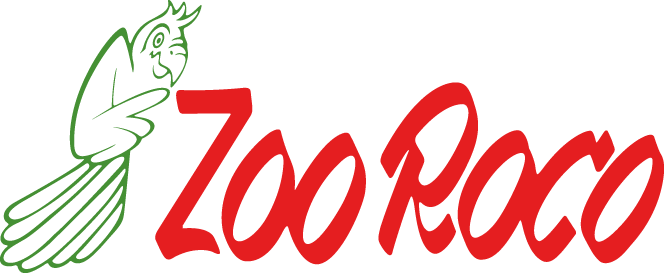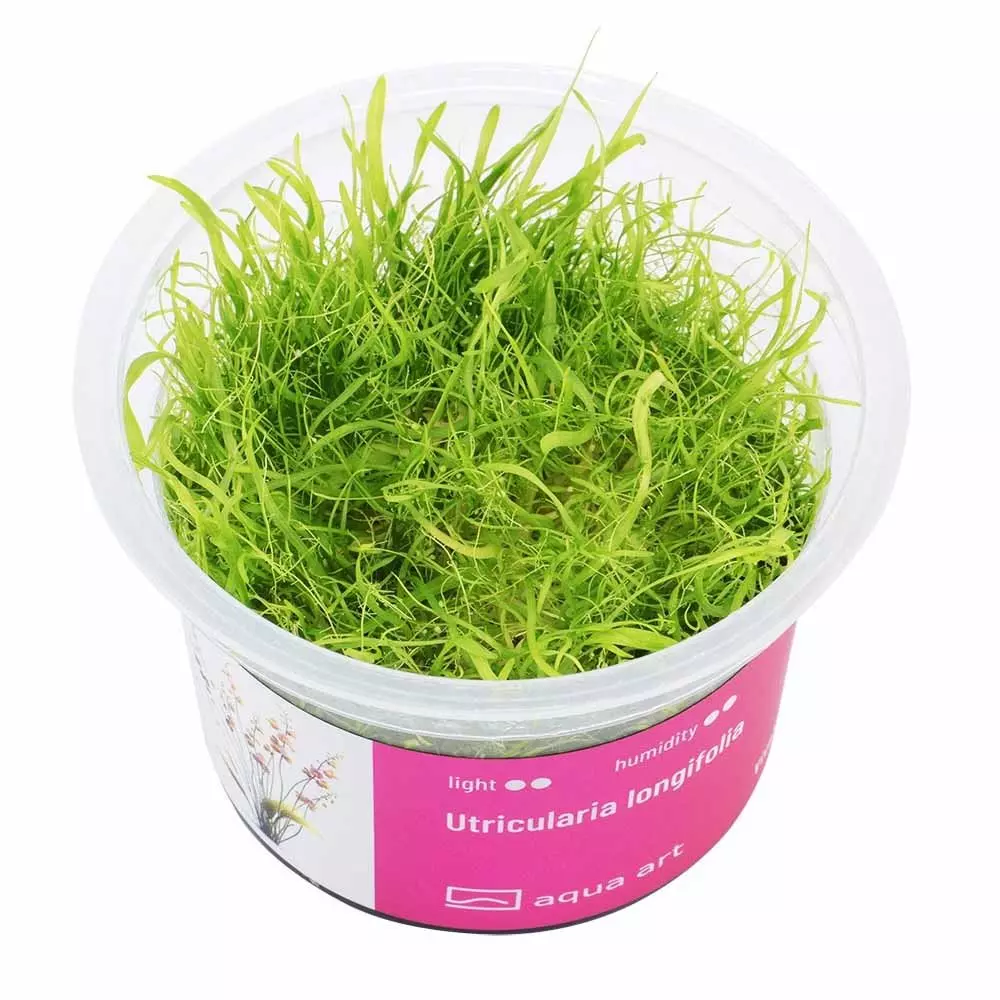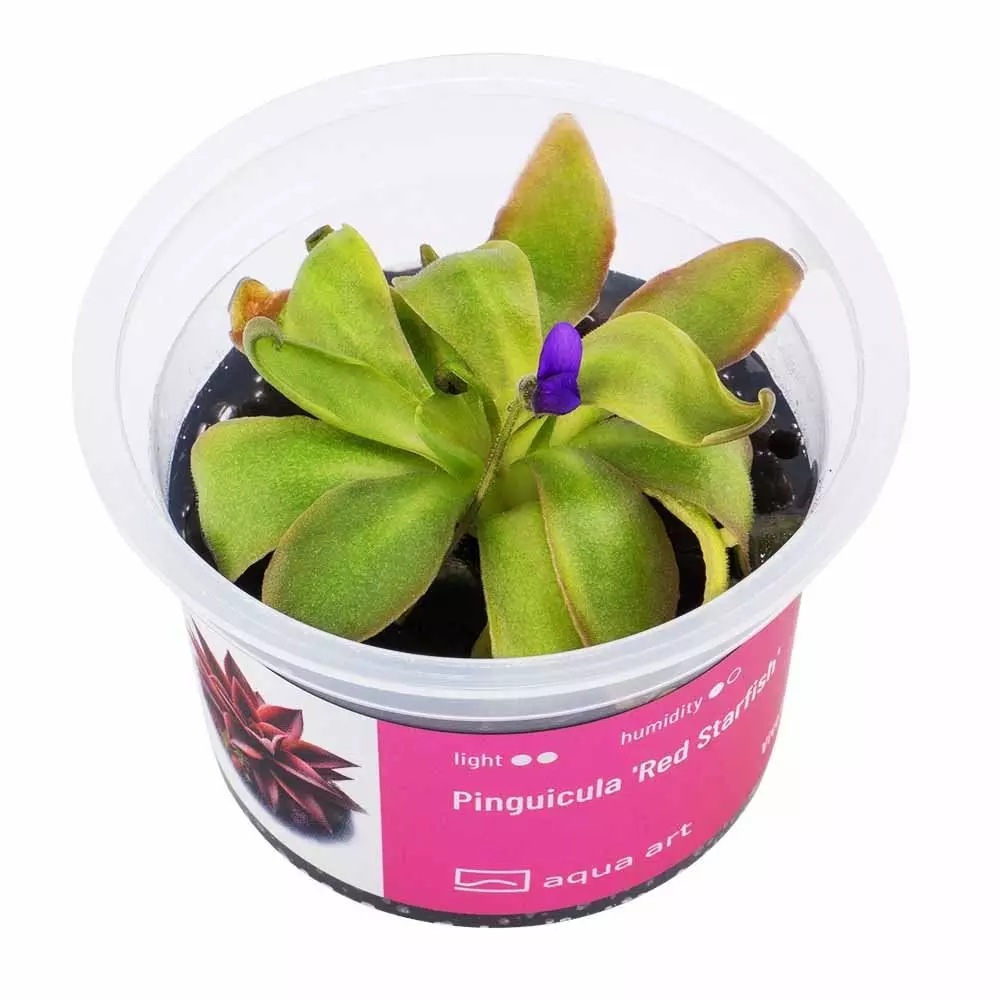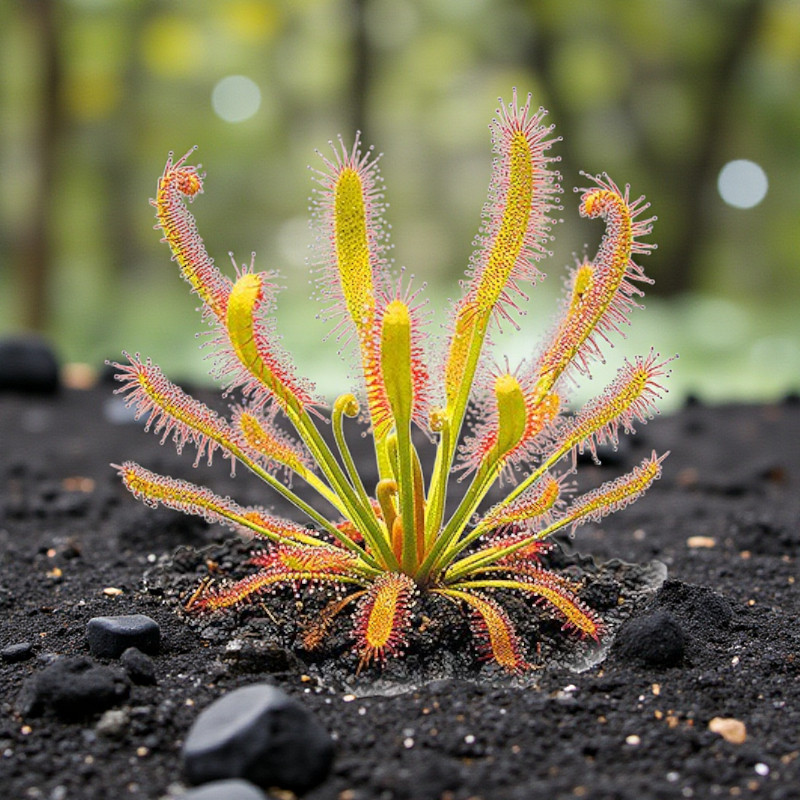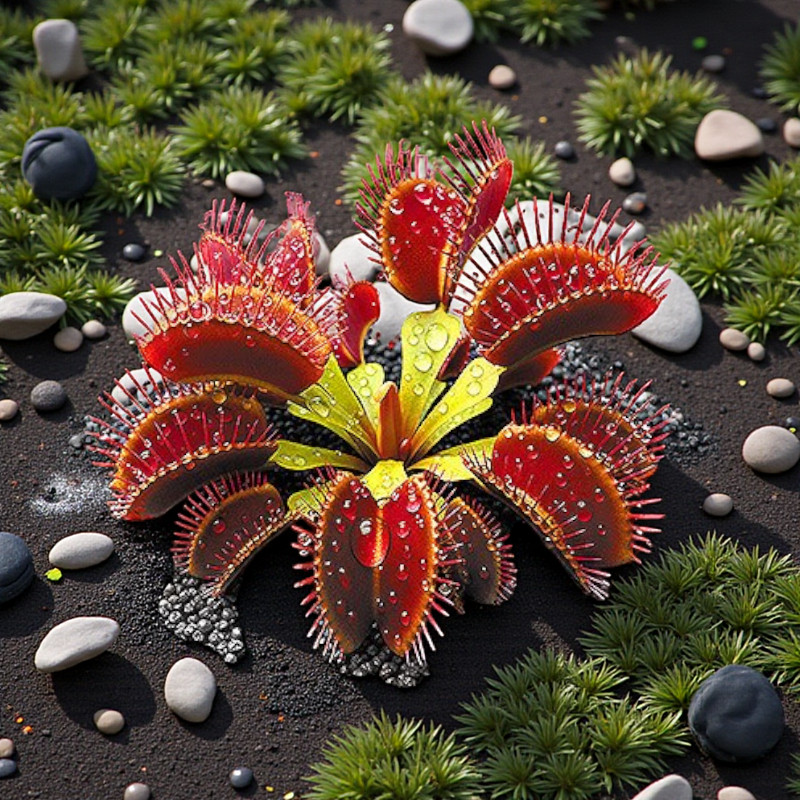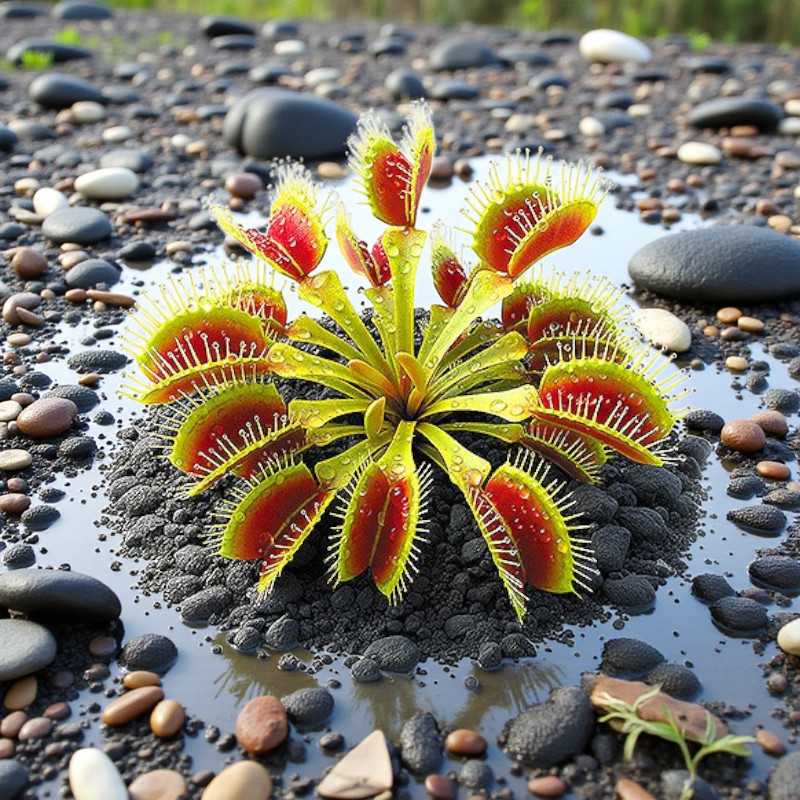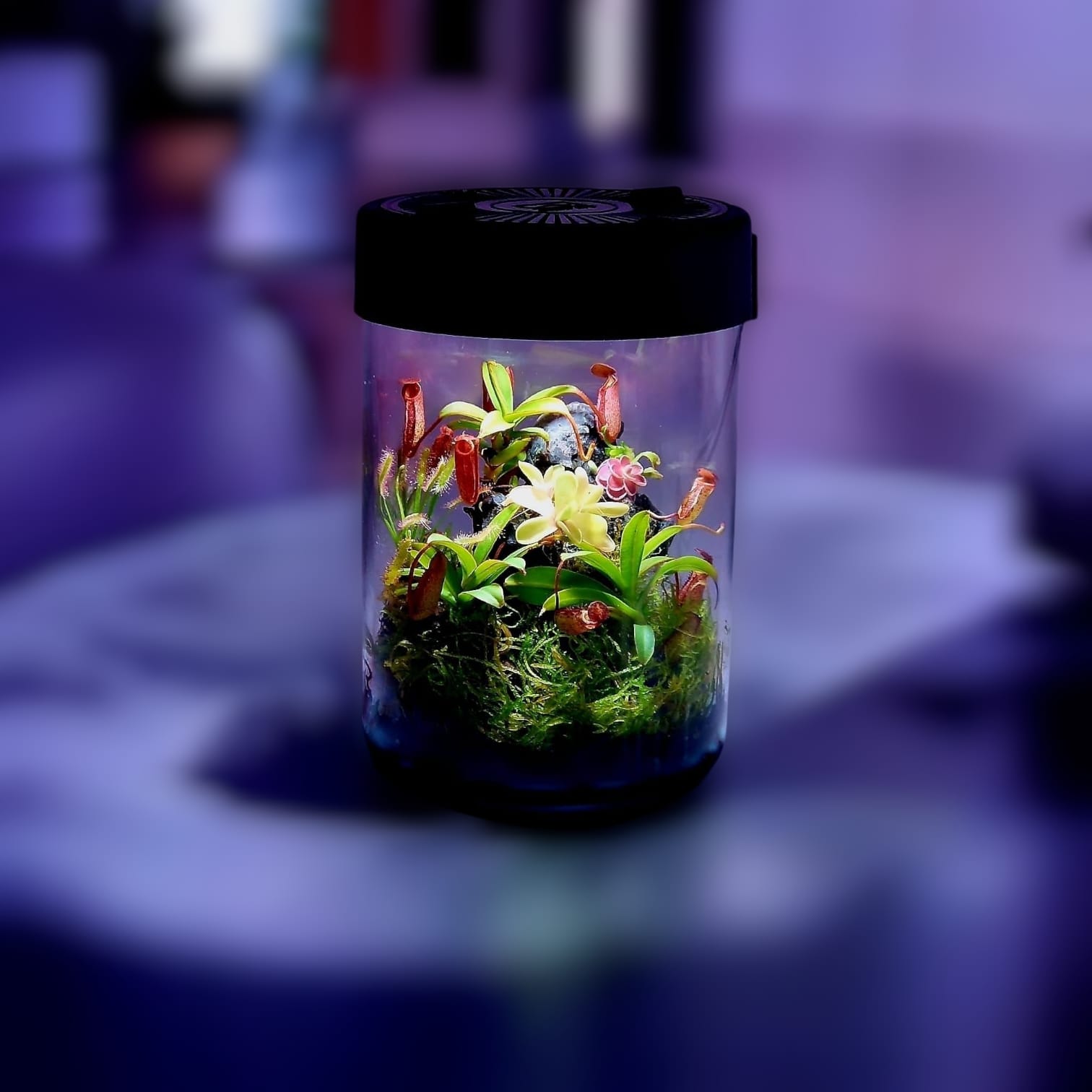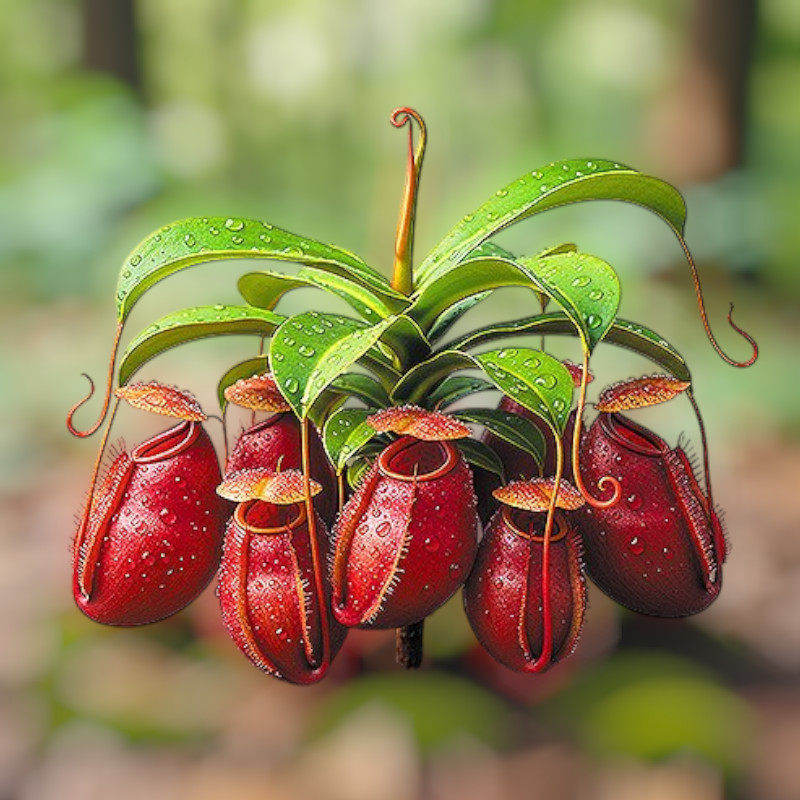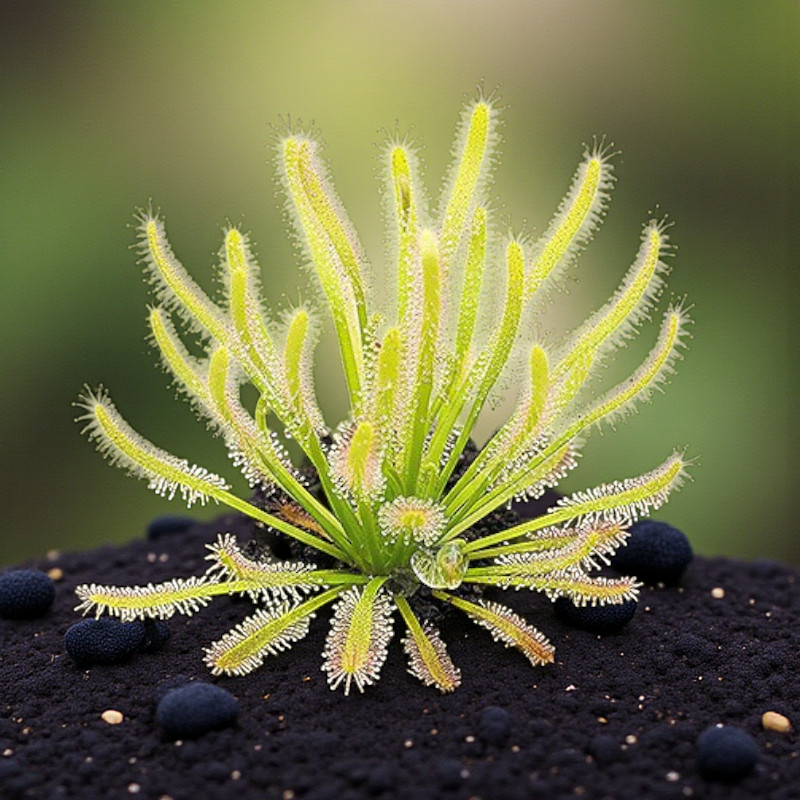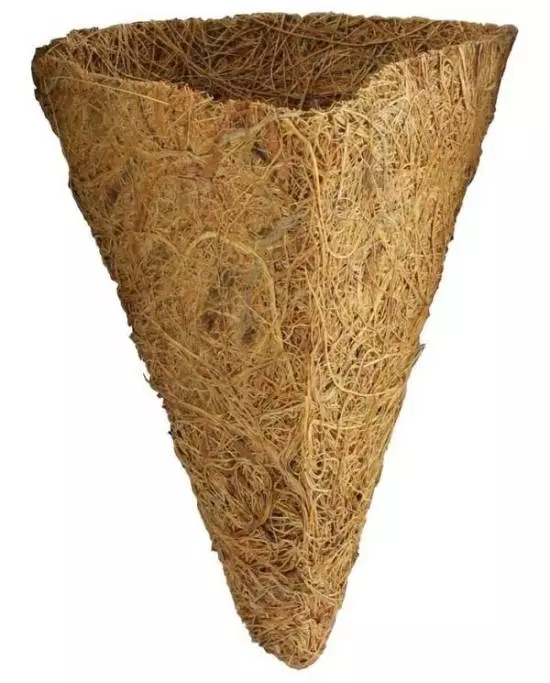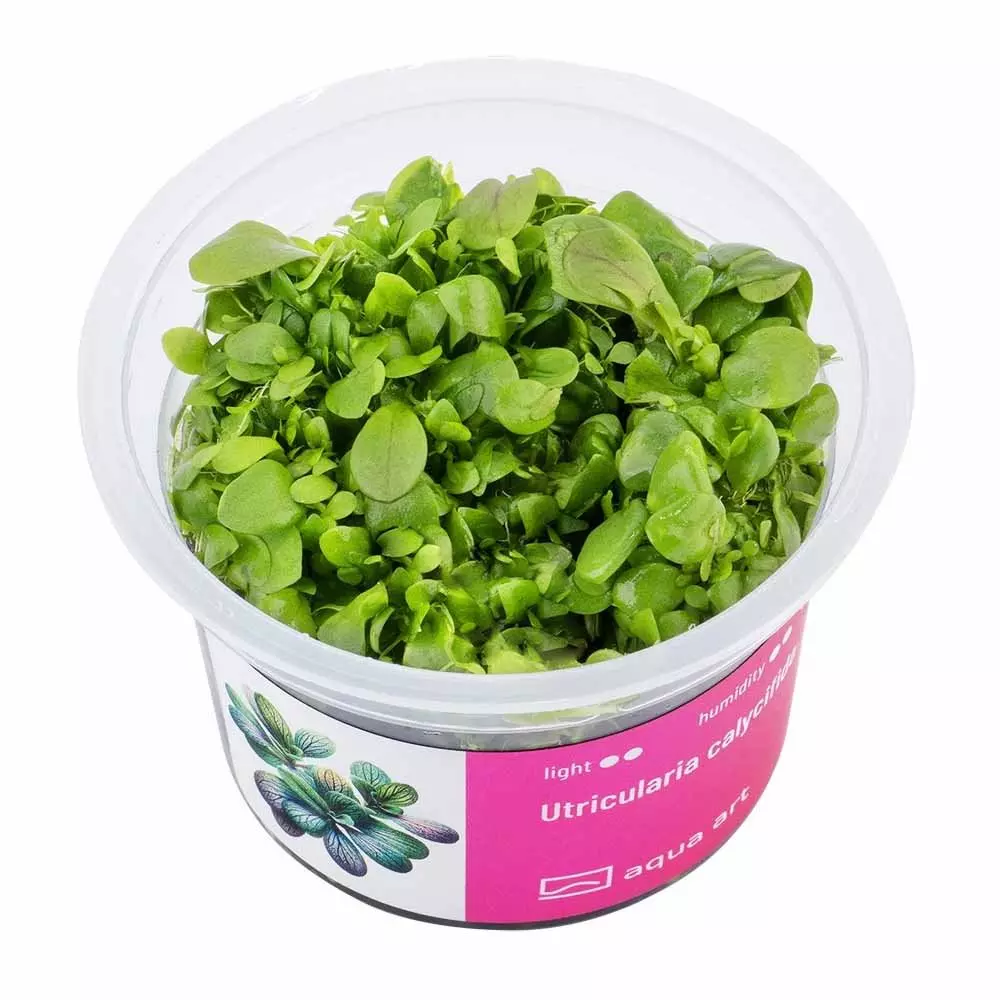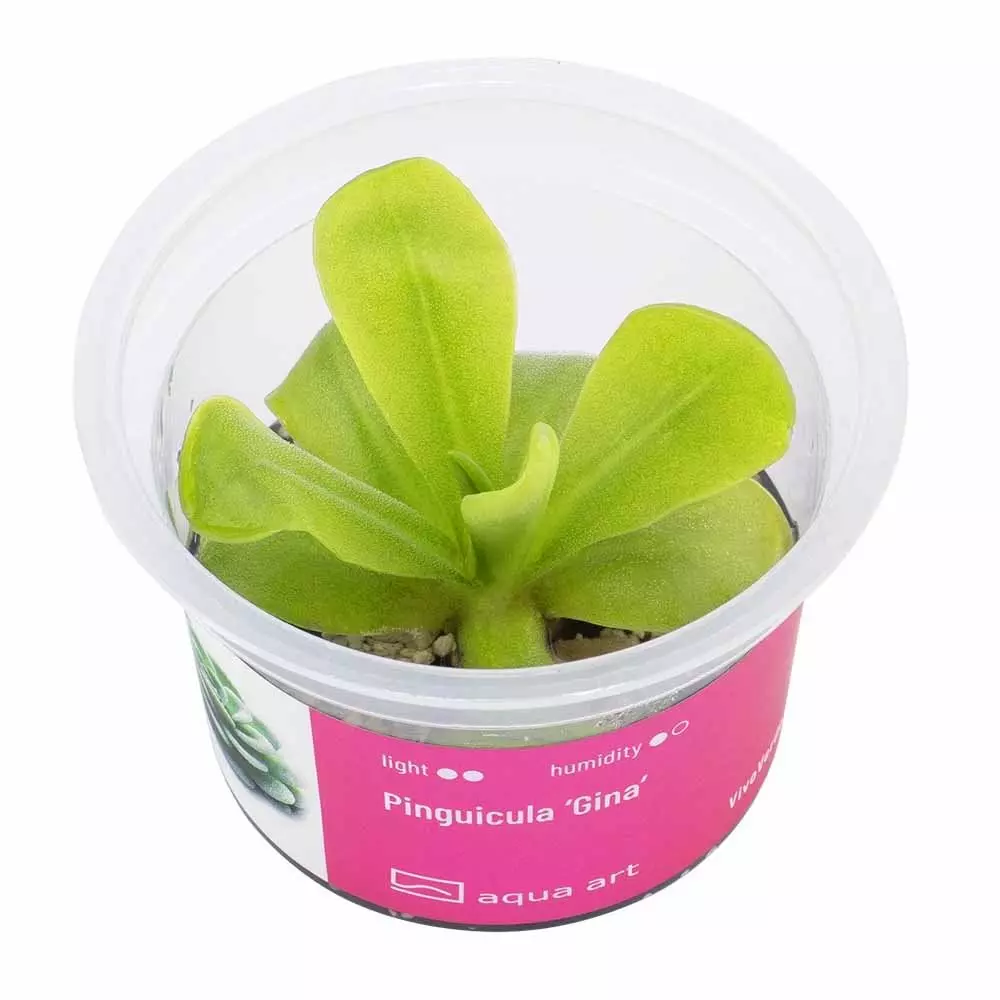
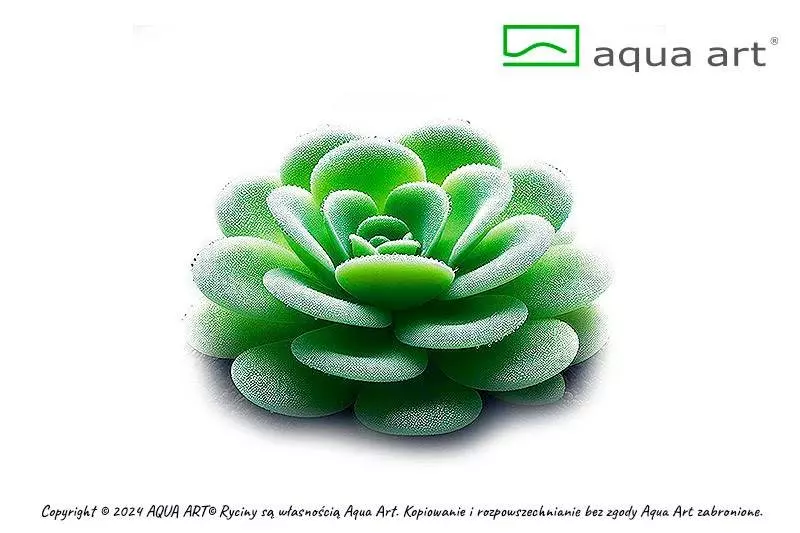
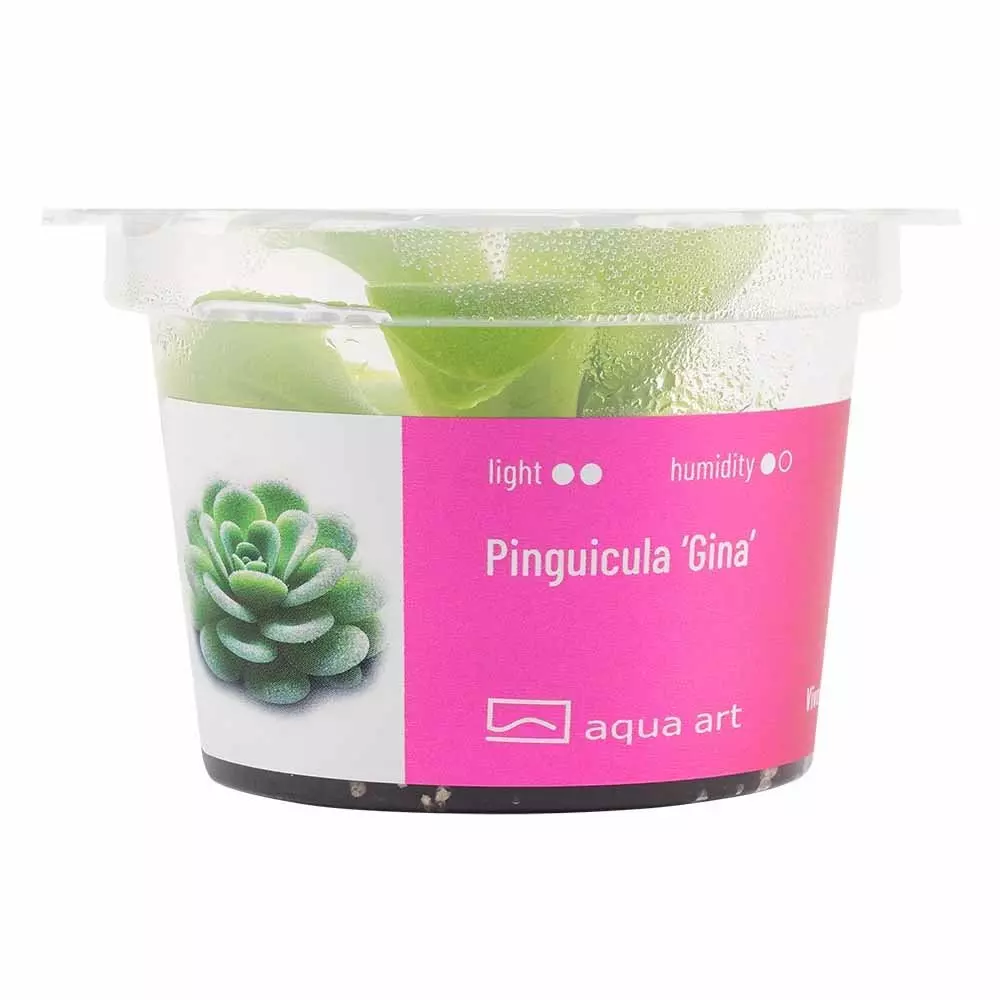













CHF 12.90
Stock: 0
Available in 1-3 days, acquisition time 14 days

Carnivorous plant - Pinguicula Gina
- supplied in an in vitro cup
- Diameter up to 12cm
- Sunlight
- Humidity: 50-70%
- Temperature: 15-25 °C
- Flower purple, one flower per stem
Size:
The diameter of the rosette can reach up to 12cm.
Flowers:
Flowering time: Mainly in spring and summer. Delicate flowers with lilac-colored petals. The stem is slender and elongated with a single flower per stem.
Light:
Partial to full sun or equivalent growing light.
Substrate:
A well-drained mix often consisting of peat, perlite and sand.
Feeding/fertilizing:
Avoid fertilizing the substrate! The plant gets all the nutrients it needs from the prey it catches or eats.
The humidity should be between 50-70%.
The ideal temperature for this plant is 15-25 °C
Propagation is by leaf cuttings
1 of 1 reviews
5 out of 5 stars
Login
25 September 2025 06:36
Das Paket ist gut angekommen und die Pflanze ist leicht zu halten und macht Freude.
Ich hatte schon viele Pinguicula Varianten und finde es eine super Pflanze. 'Gina' ist heil angekommen - wenn auch ein bisschen durchgeschüttelt - und hat sich mittlerweile gut eingelebt. Wichtig ist, dass die Pflanze langsam akklimatisiert wird (Tips dazu gibt es auf dem Becher). Dies hat bei mir fast 3 Wochen gedauert.
Customers also bought
Similar products
Customers also viewed
